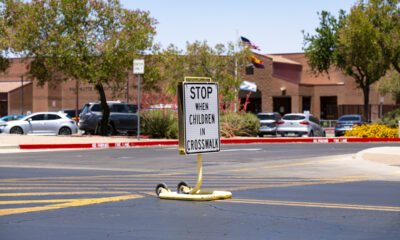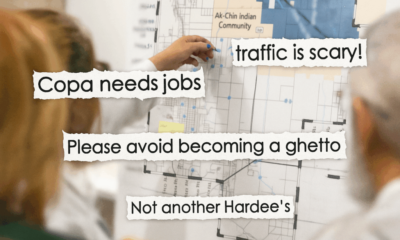22 words
TIFFANY BENSON: How This Unconventional “Religion” Is Flourishing in Public Schools Without Faith or Prayer

By Tiffany Benson |
Recent discussions have arisen regarding the impact of Supreme Court decisions Engel v. Vitale (1962) and Abington School District v. Schempp (1963), which prohibited prayer and Bible reading in public schools. Many Americans perceive these rulings as a removal of all religious activities from educational environments.
This perspective stems from a broader interpretation of the “separation of church and state,” leading to a societal view that reading Scripture or engaging in prayer on government property is unconstitutional. Since the 1960s, this narrative has contributed to a significant shift in how religion, particularly Christianity, is perceived within public education.
Engel v. Vitale centered on a nondenominational prayer introduced in schools, which was designed to be voluntary. The wording of this prayer—“Almighty God, we acknowledge our dependence upon Thee…”—has faced opposition primarily from activists who argue that even voluntary prayer contradicts the First Amendment. Consequently, numerous state laws evolved, restricting religious expression in schools.
This prohibition doesn’t appear to extend uniformly across all religious beliefs. Critics argue that it disproportionately targets Christianity, claiming a systematic effort to marginalize its public presence. The 1961 Supreme Court case Torcaso v. Watson noted the protection of “secular humanism” as a legitimate religion under the First Amendment, setting a precedent that some say elevates non-religious beliefs above Christian ones in public settings.
Parents may be unaware that their children are absorbing secular humanism in various lessons. Education systems often mask this ideology under the guise of standard curriculum requirements. Common subjects like Evolutionary Theory, Social Studies, and Ethnic Studies have been identified as vehicles for promoting secular values rather than Judeo-Christian principles.
David Barton’s 2007 book, “Separation of Church and State: What the Founders Meant,” highlights alarming statistics post-1962. He points out a dramatic rise in teenage pregnancies and sexually transmitted diseases, suggesting that the absence of religious principles correlates with declining public morals. Current issues like youth suicide and violence have also surged, prompting questions about the educational climate’s influence on behavior.
While not every incident can be directly traced back to these secular teachings, there is a growing concern regarding the moral education, or lack thereof, in public schools. The values instilled—or not instilled—in students resonate within their societal behavior, influencing youth culture in significant ways.
The shift towards a secular educational ethos has left many parents grappling with fears of ideological indoctrination. In light of these challenges, some argue for a reevaluation of public schooling, asserting that an exodus from this system could uphold family values and fortify moral foundations for future generations.
Tiffany Benson is the Founder of Restore Parental Rights in Education. Her insights on education, politics, and faith are available on her platforms.


















